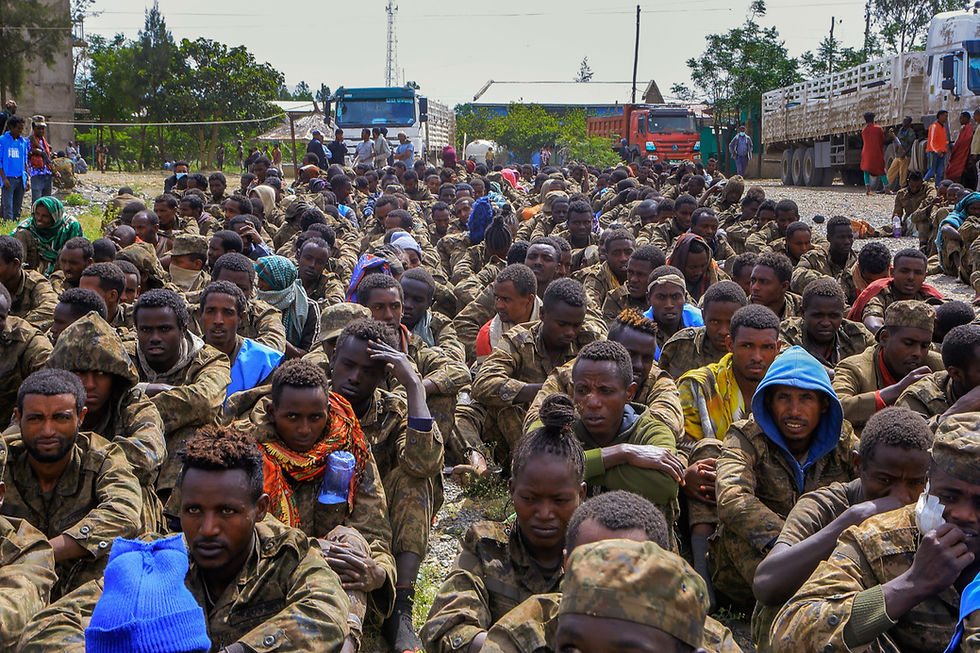Ethiopia (III): The geographic prison of an unsatisfied power
- Pablo Díaz Gayoso

- May 22, 2025
- 3 min read
In Ethiopia (I): Ethnic Federalism and Ethiopia (II): The Drums of War Resound we have delved into one of the most unique and ancient countries in the world. In them we have analyzed its peculiar political system, as well as the vital challenge it has recently faced with a succession of wars, both civil and against another state, that of Eritrea. We will now look at what challenges Ethiopia faces in the near future and how this is affecting the Horn of Africa region.
Eritrea's independence caused Ethiopia to lose its landlocked status, making it the most populous country in the world locked within its land borders. This situation has created many problems for Ethiopia since access to the sea is one of the key elements for a country to be connected to the outside world. This maritime connection is key to be able to create trade relations for the purchase and sale of products at a much lower cost than those offered by land routes. In this area we are talking about a high cost in terms of infrastructure and security. Relying exclusively on land routes considerably reduces the number of external players who want to trade with you and means that those who do want to do so have to do so at a high cost. Added to this is the fact that Ethiopia's immediate neighborhood is not exactly the most stable and peaceful.
To the west Ethiopia borders South Sudan, a country that since its independence in 2011 has spent more time in civil war than in peace and is still in conflict with opposing paramilitary forces in the Upper Nile. If we look to the north, Ethiopia has Sudan and Eritrea as neighbors, the former has been in a bloody civil war since 2023 and the latter is its historical enemy with which it has been in partial or total conflict for more than 25 of the last 35 years.

On the other hand, if we look at its eastern neighborhood, it has two internationally recognized states. One of them is Somalia, a failed state that barely controls the capital Mogadishu while the jihadist group Al-Shabaab has more presence in the rest of the country. The other country is Djibouti, a small country with less than one million inhabitants and a territory equivalent to Belize with military bases of France, USA, China, Japan and Italy.
Of all of the above, it has been Djibouti that has been the only one to give Ethiopia an outlet to the sea, and thanks to China, the two countries have been connected by rail since 2018. However, the outlet to the sea has not been out of solidarity. Djibouti charges Ethiopia more than $1 billion a year in port fees. This costly figure is taking its toll on Ethiopian accounts, and recently Prime Minister Abiy Ahmed has been more than willing to open a second sea connection. This time he is straining regional relations as the second route he wants to open in Somaliland. Somaliland is a state that is not internationally recognized, but is more functional than Somalia itself, from which it gained independence in 1991.
In order to stop depending on Djibouti, Ethiopia has set its sights on the ports of Berbera, Zeila or Sayilac, and to get them it has put on the table the possible recognition of Somaliland as a sovereign state. In 2024, in order to be able to use the port of Berbera, Ahmed has already signed an understanding with Somaliland for its use for the next 50 years, with the installation of the respective Ethiopian military base corresponding to the defense of the port. This pact, if formally implemented, could trigger a war with Somalia, a country with international legitimacy to declare that Ethiopia has invaded its recognized territory, a situation that would be further aggravated by the recognition.

If the situation is complex for all actors, this is compounded by the Ethiopian military detachment that is deployed in Somalia collaborating with Mogadishu to fight Al-Shabaab. At the same time, both Somalia and Ethiopia are dragging old wounds that have not been closed with the war they fought between 1977 and 1978 for the Ogaden region (Somali for Ethiopia). Also in the background are the non-state political actors in both states such as Al-Shabaab that may exacerbate nationalist feelings of grievance if Mogadishu does not stand up to Ethiopia and vice versa. As we saw in The Geopolitics of the Nile: The Ethiopia-Sudan-Egypt Conflict, this is not the first time in recent years that Ethiopia, as a power dissatisfied with the regional status quo, has acted as a destabilizing political actor in the region.










Comments